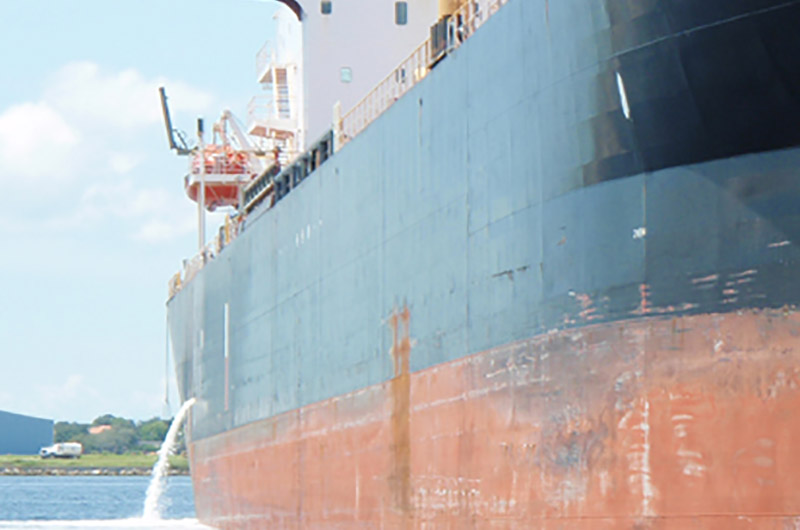After years of trying, the barge industry has finally won major changes in the way ballast water discharges from vessels are managed by the federal government and states.
President Trump signed into law on Tuesday the Frank LoBiondo Coast Guard Authorization Act of 2018 that would end an overlapping patchwork of state and federal discharge regulations that for years had been costly and confusing to vessel owners. Operators argue that lack of a single, national standard has exposed them to fines and other penalties for violating standard in one state while complying with those in another, and they say some state regulations can’t be met with current technologies.
Winning passage of the Vessel Incidental Discharge Act, known as VIDA, is a top legislative priority for the barge industry, represented by the American Waterways Operators. AWO has worked with other stakeholders over the years to fashion a bill that would set federal standards for vessel discharges, but success has been elusive until now.
The legislation was slowed by opposition from environmental groups, worried that it would weaken standards on discharges and lead to the release of harmful organisms into waterways and lakes, and from state legislatures and governors concerned that Uncle Sam would be taking over state authority to monitor waters in their jurisdictions.
Critics were especially upset that authority and responsibility would be shifted from experts at the EPA to the Coast Guard, which they say lacks expertise to monitor lakes and rivers from invasive species.
In April, the Senate failed to pass the Coast Guard bill containing VIDA when several of the bill’s supporters changed their votes at the last minute, apparently influenced by concerns from Great Lakes senators and the upcoming midterm elections.
Several months of negotiations followed that produced a compromise that was acceptable to states and green groups. And with the elections over, the political climate was ripe to move it forward.
Under the negotiated version, the EPA would retain lead responsibility for establishing discharge standards, and the Coast Guard would be in charge of enforcement. States would be able to adopt their own ballast regulations but they can’t be stricter than federal ones. (Great Lakes states, however, could work together to go beyond federal standards). The EPA has two years to develop the new regulations and until then, existing state and federal regulations will remain in place.
VIDA also exempts commercial vessels under 79 feet from needing to obtain EPA permits for ballast water and other incidental discharges.
Environmental groups are generally happy with the compromise, and AWO says the legislation “will give vessel owners and mariners the certainty of a nationally consistent regulatory system, while ensuring high standards of environmental protection.”
On other important maritime issues, the Coast Guard authorization bill would:
- Prohibit foreign ocean carrier alliances from negotiating jointly with U.S. tug operators, which was a big concern of harbor service providers.
- Drop the requirement that active mariners take redundant radar refresher training.
- Require the Coast Guard to revise user fees that vessels using the Towing Safety Management System (TSMS) option to comply with the new Subchapter M towing vessel inspection program, if the TSMS inspection is determined to be less expensive than the Coast Guard inspection option.
- Require the Coast Guard to deliver a plan to extend the 42-year life of the Polar Star icebreaker and authorize funds to execute the plan by the end of 2025 while an icebreaker replacement program takes hold.
- Exempt the 176-passenger historic paddlewheeler Delta Queen from a federal law that requires vessels with overnight accommodation for 50 or more to be made of fireproof materials. This will allow the corca 1926 cruise vessel, now docked in Houma, La., to get back in the business of providing overnight cruises on the inland waterways.
- Provide a Jones Act waiver to the fishing vessel America’s Finest so that it can be put in service, even though roughly 10% of its hull was made with foreign-fabricated steel in violation of the Jones Act.




